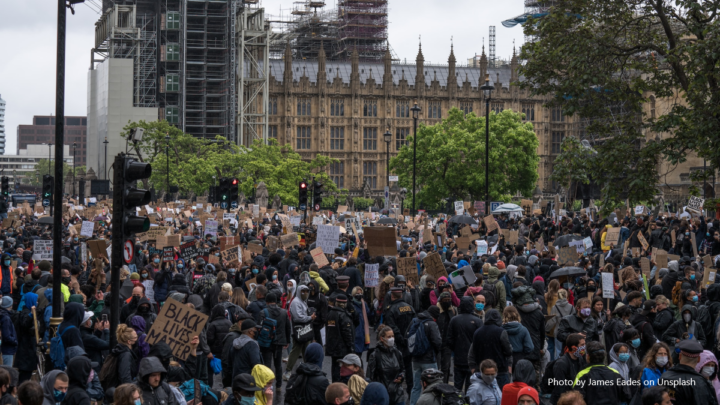During the summer of 2020, organizations, companies, churches, and leaders across America struggled to respond to video footage of George Floyd being killed by a police officer in Minneapolis, Minnesota. Floyd was arrested after a store clerk suspected him of using a counterfeit twenty-dollar bill. Derek Chauvin, one of four officers that arrived and arrested Floyd, knelt on Floyd’s neck and back for 9 minutes and 29 seconds. Within twenty-four hours, the murder of George Floyd led to socio-political uproar across America, and his dying words, “I can’t breathe,” became a rallying cry globally.
The American evangelical church is unprepared for the current socio-political climate that is generating severe racial strife and tension in American society. Highly publicized killings of unarmed black people present an intensely political issue for individuals and communities. These shootings cause considerable psychological distress in individuals and racial tension in communities and cities. The evangelical church is unprepared and thus vulnerable to division and strife within its own walls, is hindered in achieving and sustaining ethnic diversity, and typically fails to provide a robust, prophetic message of hope in the midst of socio-political despair.
Drawing from current sociological, psychological, and political research, this course will make the case that the church must take proactive measures to prepare for – using my own coined term – racialized storms. Churches must prepare for these storms to reduce their severity and impact on their communities and cities. I then recommend strategies drawn from the academic and professional fields of climate change adaptation and natural hazard mitigation to reduce the severity of these storms within congregations and communities.
Training Objectives and Outcomes:
Participants will have an understanding of how racial oppression is systemic.
Participants will analyze the racial crisis framework and study practical steps to prepare for and respond to racially charged events that inflict trauma on the social fabric of America.
Participants will learn how to help organizations proactively prepare for radicalized crises.
Participants will learn strategies drawn from the academic and professional fields of climate change adaptation and natural disaster mitigation.
Participants will leave with ideas on how to stand up for racial justice in their communities.
Learning Outcomes:
George Floyd, Ahmaud Arbery, Breonna Taylor, Philando Castile… The killings of these unarmed men and women ignited racial firestorms across the country. Too often, organizations and individuals across America struggle to respond to and lead through the sociopolitical uproar these events produce. These shootings cause considerable psychological distress in individuals and racial tension in communities and cities.
Participants will analyze the political, theological, and economic cultural contexts of America’s racial history and how these contexts influence the national sentiment when racialized crises occur.
For more information or to schedule a seminar, please contact Dorrell Briscoe at [email protected].

